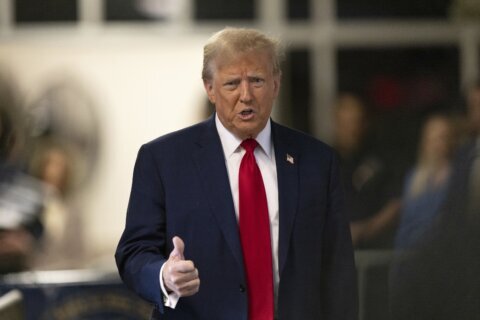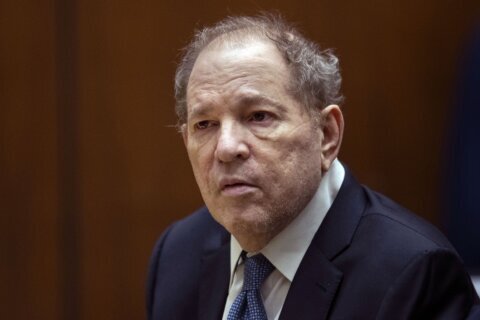CHARLESTON, W.Va. (AP) — West Virginia was the “canary in the coal mine” of the ongoing U.S. opioid epidemic, a former state health official said Wednesday as witness testimony continued in a landmark trial between local West Virginia governments and three large drug distributors accused of fueling the crisis.
Cabell County and the city of Huntington argue that drug distributors AmerisourceBergen Drug Co., Cardinal Health Inc. and McKesson Corp created a “public nuisance” by flooding the area with 80 million opioid doses over eight years and ignoring the signs that the community was being ravaged by addiction.
Similar lawsuits have resulted in multimillion-dollar settlements, but this is the first time allegations have wound up at federal trial. The result could have huge effects on hundreds of similar lawsuits that have been filed across the country.
Historian David Courtwright testified in federal court in Charleston that there have been four previous major opioid crises in the U.S., according to The Herald Dispatch of Huntington.
He said there was an opium and morphine epidemic in the 19th century, heroin epidemics in the late 1940s and late 1960s, and an epidemic in the late 1990s prompted by an increase in prescription opioids.
Each followed the same pattern, Courtwright said: the number of cases got out of control, the public reacted and laws were enacted to handle the issue.
But the current problem has persisted in West Virginia, which former state public health commissioner Dr. Rahul Gupta said continues to lead the country in overdose rates and abuse.
About 7,200 West Virginians died with at least one opiate in their system between 2001 and 2015, according to a state drug overdose death report. A majority of them were between the ages of 35 and 54.
“These were the hard-working West Virginians who were being impacted in the prime of their lives,” Gupta told the court.
In Cabell County alone, there have been about 1,100 opioid-related deaths and 7,000 overdoses in the past decade, county attorney Paul Farrell Jr. said Monday.
The defendants objected several times to the testimony of Gupta, who’s being considered to be President Joe Biden’s drug czar. They fought before the trial to keep his testimony out, according to The Herald-Dispatch.
While Wednesday’s testimony focused on the history of opioid epidemics, Tuesday’s centered around the science.
Dr. Corey Waller, who specializes in addiction medicine, said that dopamine is at the center of substance use disorder, The Herald-Dispatch reported.
People feel more invincible as the amount of dopamine — a naturally occurring hormone that prompts happiness — in their bodies rises, Waller said. Levels can reach 100 nanograms per deciliter on a great day but rise to 900 on semi-synthetic opioids like oxycodone, hydrocodone and heroin, according to the doctor.
The skyrocketing increase of dopamine from opioid medicine permanently harms the body, he said, leading to substance use disorder and the behavioral issues that come with it. More of the drug is needed during subsequent uses to feel the same satisfaction as the first high.
“When we disrupt that part of the brain, we really disrupt all aspects of … how we react,” Waller told the court, according to the newspaper.
Attorneys for the defendants attempted to shift the blame away from their clients Tuesday by arguing that what happens after delivery is out of the suppliers’ control. They also pointed out that the companies — known as “The Big Three” — had no authority over illicit street drugs, the cause of the current crisis.
The defendants argue that they filled orders when the Drug Enforcement Administration, West Virginia Board of Medicine and others asked for larger shipments.
A judge last month rejected the companies’ attempt to dismiss the case.
In separate, similar lawsuits, West Virginia reached a $37 million settlement with McKesson in 2019 and $20 million with Cardinal Health and $16 million with AmerisourceBergen in 2017.
Copyright © 2024 The Associated Press. All rights reserved. This material may not be published, broadcast, written or redistributed.







